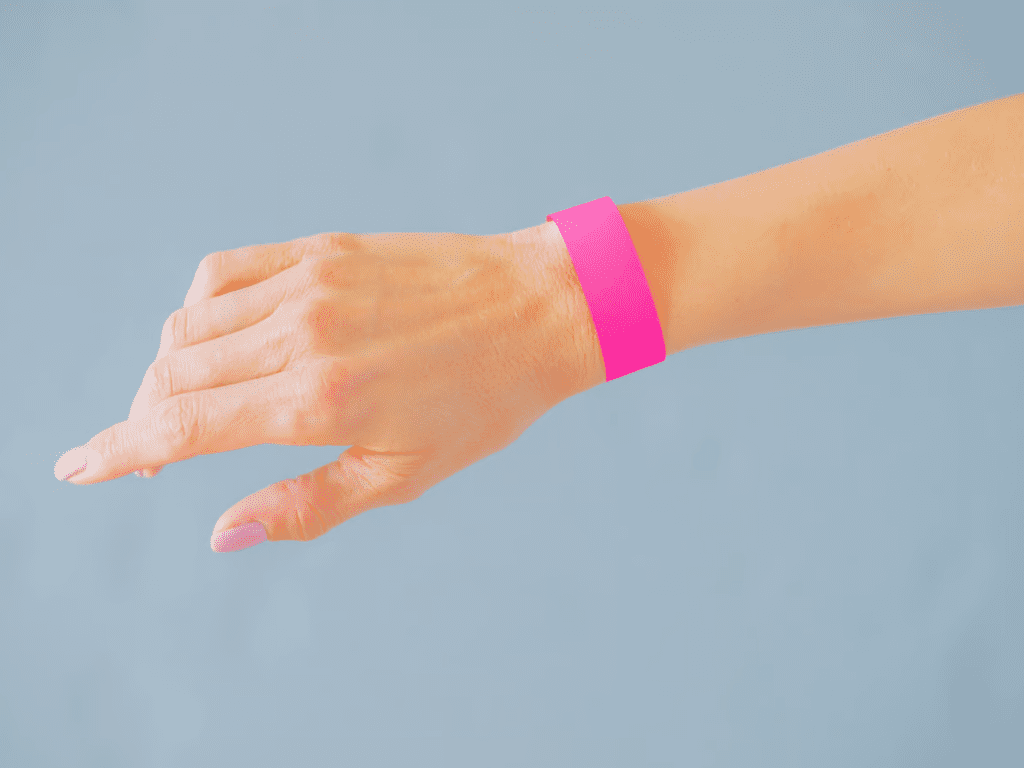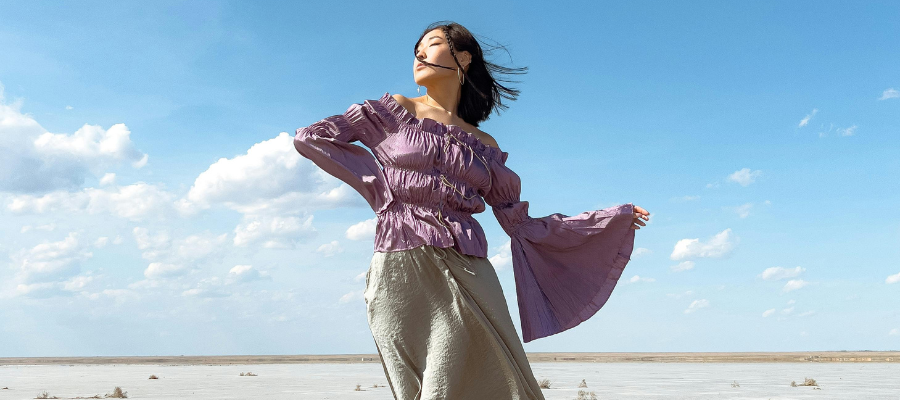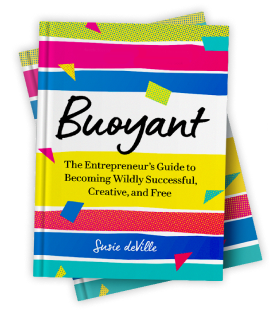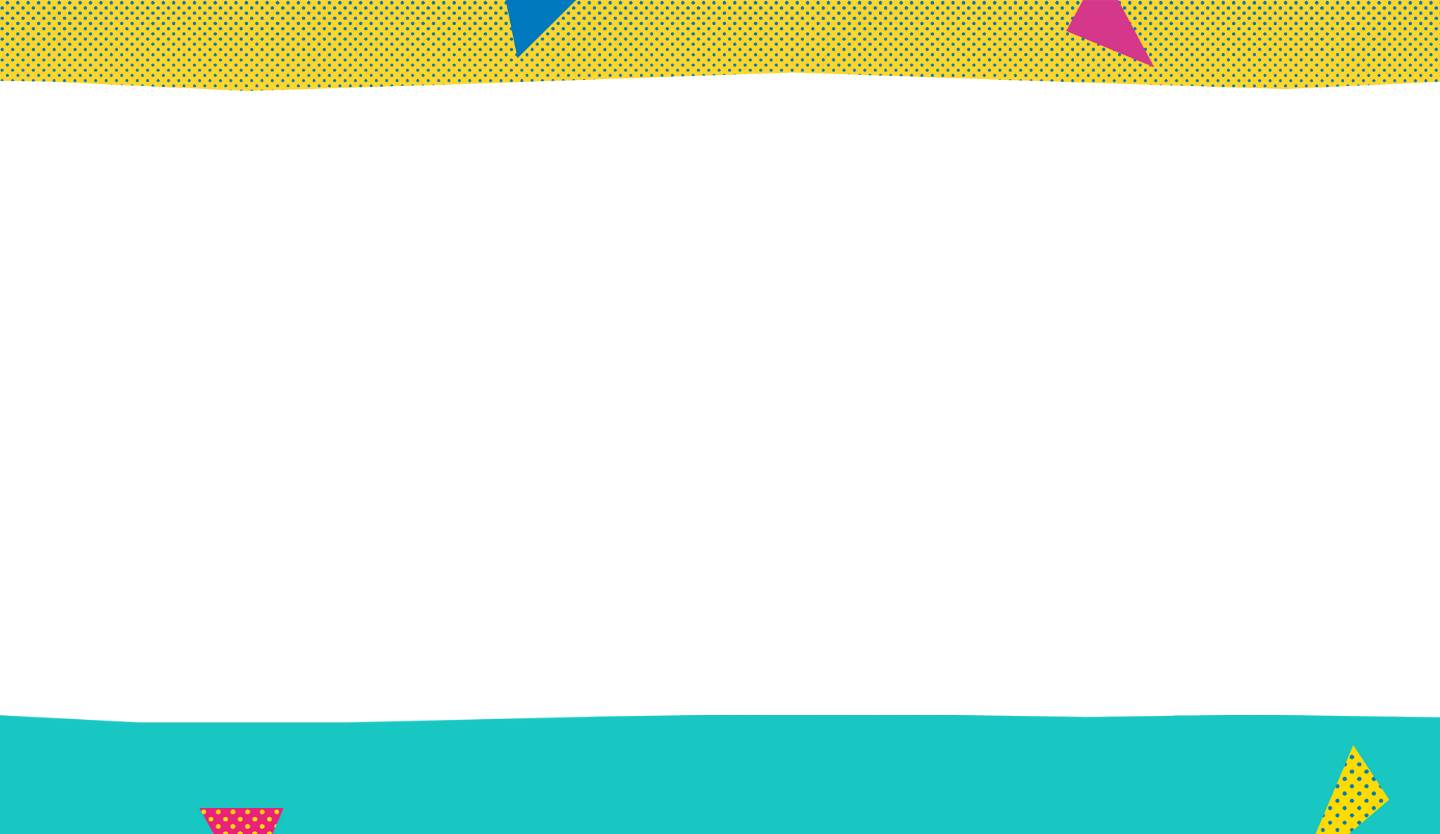Do you ever find yourself feeling like the victim of your own life? Watching and waiting for yourself to do things you don’t want to do and complaining to yourself in advance? When we’re out of touch with our creative selves, it’s easy to get caught up in this disempowered mindset and forget our autonomy. Here’s how I’ve learned to reclaim ownership of my own life and restore self-empowerment.
In the long run, we shape our lives, and we shape ourselves. The process never ends until we die. And the choices we make are ultimately our own responsibility.
Eleanor Roosevelt
A few years ago, I ran an experiment, and the results surprised me.
I began with a question: How much do I complain during the course of a day? To find out, I placed an oversized rubber band on my wrist. Each time I caught myself complaining, I would move the rubber band to the other wrist and make a tally mark on a notecard.
At the end of the day, the notecard had seven marks. While the number of complaining incidents intrigued me, I was much more interested in how I was complaining. I was not complaining aloud to anyone, but rather to myself!
The majority of my complaints had an odd tenor to them. I was carrying on an inner dialogue that was a run-through of things I needed to do. I’d come to a certain task on my mental list and start to complain internally.
I discovered that these incidents were not only distracting and draining but also corrosive and toxic. They were leading me away from self-empowerment.
Negative Consequences of Complaining
1) We wire and fire the same neural circuits, and in doing so, we create a mindset of scarcity and limits.
2) When we complain, we and our brain think we are working on the challenge/doing something about it when in reality, we are not doing anything.
3) We step into a stance of victimhood and eschew taking personal responsibility, distancing from self-empowerment.
Why Taking Personal Responsibility Is the Key to Self-Empowerment
Personal responsibility is the cornerstone of self-empowerment. It is the recognition that our choices, actions, and reactions shape our reality. When we embrace personal responsibility, we acknowledge that we are the architects of our own lives.
This self-empowerment mindset fosters accountability, resilience, and growth.
Rather than playing the role of a passive bystander buffeted by the winds of fate, we become active participants in our journey. We understand that our decisions have consequences and that we have the power to steer our lives in the direction we desire.
To be clear, this is not a clarion call to grasp the reins more tightly. To control, direct, and dysfunctionally rescue. Nor is this a suggestion to live more from a place of duty and obligation.
(When we operate solely from a sense of duty, we may find ourselves trapped in roles and responsibilities that do not align with our true desires or values. This can lead to resentment, burnout, and a feeling of being shackled by obligations that drain our energy and enthusiasm for life.) Self-empowerment does not equate to self-control and obligation.
Instead, we can acknowledge that we crave clarity, decisiveness, and impact while we embrace our autonomy and ability to be at the helm. We can leave the fog of buffering, not wanting to feel, not wanting to know.
I learned something else during my experiment. Something that would impact my life and the lives of my clients in ways I never anticipated.
Making something—anything, no matter if it is “good” or not—helps us to be better at taking personal responsibility and helps us achieve self-empowerment.

When we step across the Threshold and choose to create, we face what it is that strikes fear within us. We let ourselves be uncomfortable. We take a long, hard look into the chasm and decide it is all survivable.
We bring our attention, energy, and focus back to what it is we can control, what it is we can influence. We release any attachments to what others think. We strive to connect and express our authentic selves, what we believe, what breaks our hearts as well as what brings us alive.
Through self-expression and making something, each of us can develop the mindset and skills necessary to take ownership of our lives, choices, and contributions to the world.
Taking personal responsibility is self-empowerment because it liberates us from the confines of external expectations and empowers us to create the life we desire. By owning our choices and actions, we reclaim agency over our destiny.










